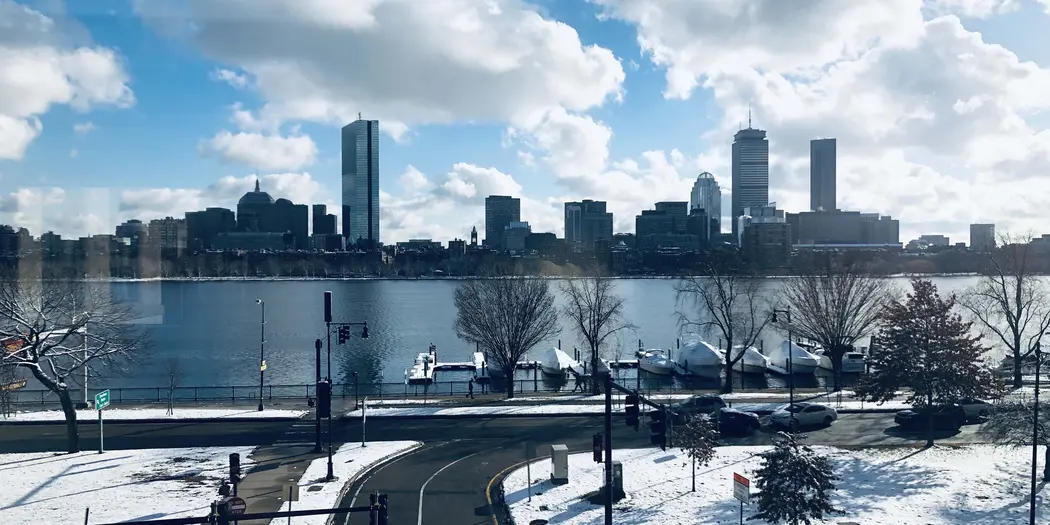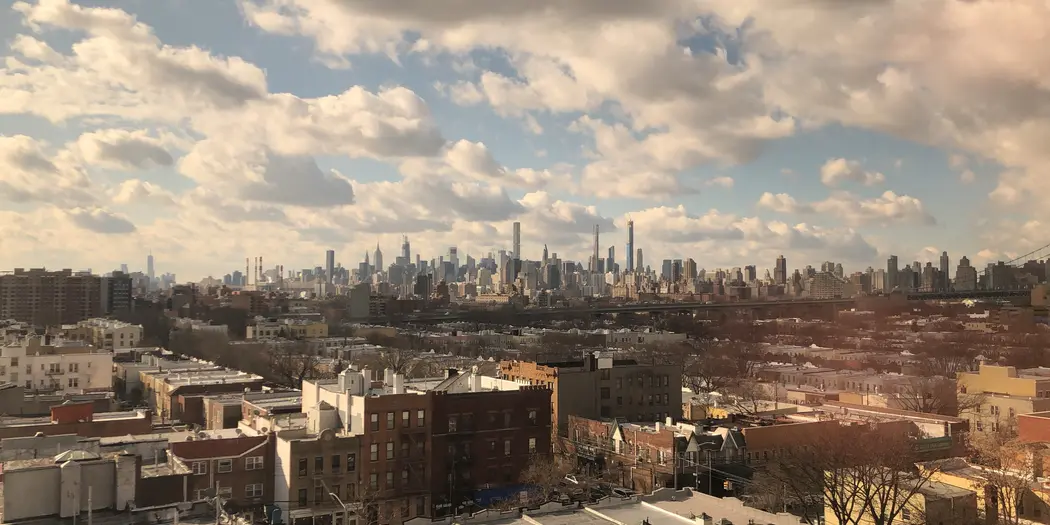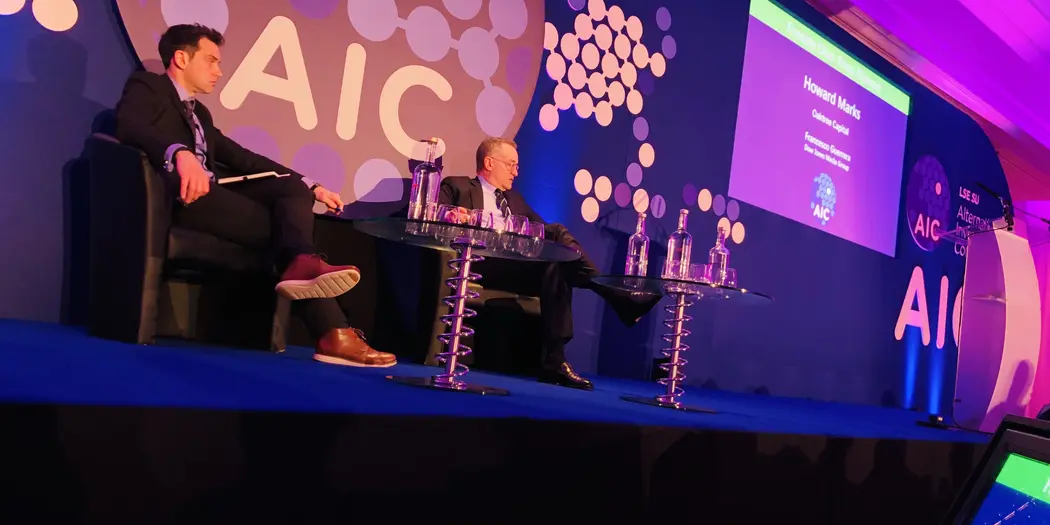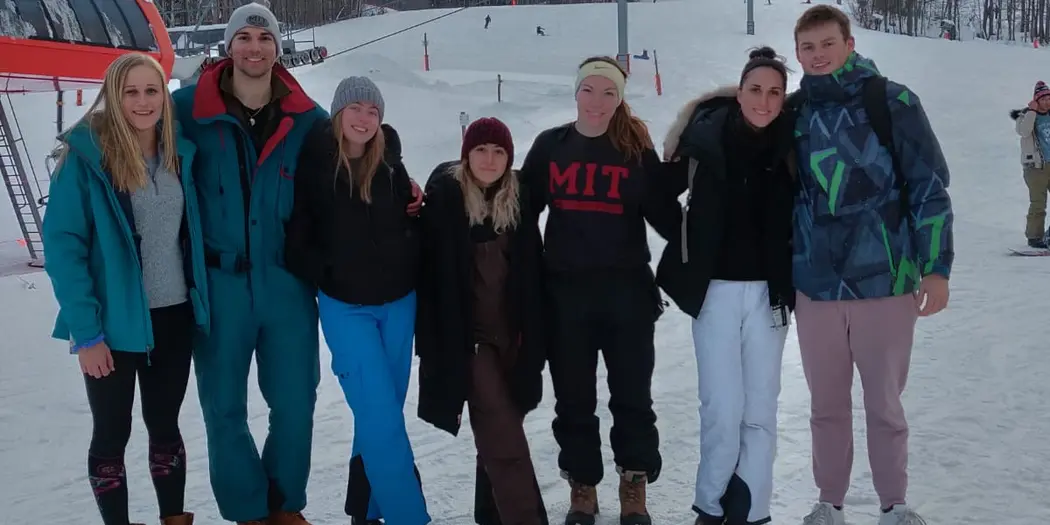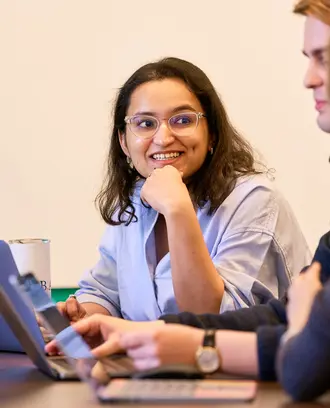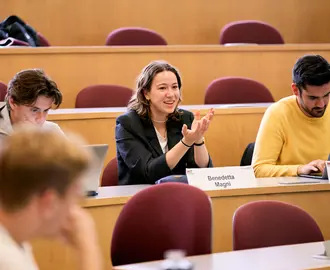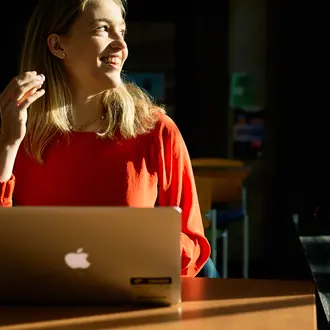Ever since I came to MIT Sloan, I knew there was something special about this place. From my classmates to the Faculty, from the Staff to the facilities, this university had the power to hook me in a way that I did not expect, and that taught me a lot more about who I am.
IAP was the defining moment of this relationship, which is getting stronger and stronger as I am getting ready to start the spring term.
Before we start, however, I think it would be useful to give you some more context about myself.
My name is Carlo Urbano, MFin 2020, Italian born and raised.
I enrolled at MIT after a BSc in Economics and Finance at Bocconi University, an investment banking internship in London, and an exchange semester at the Wharton School of the University of Pennsylvania. Passionate about dealmaking and investing, I am designing my curriculum at MIT to complement my corporate finance knowledge with more quantitative tools, with the goal of participating in the transition towards a new hybrid paradigm of financial expertise.
But now, let me dive into what you are here to read about.
I will be honest and admit that, ahead of an incoming investment banking job, the temptation to take a whole month off and travel around the globe, discovering its beauties, has been tempting. However, if there is one thing I learnt since coming to Cambridge, is that to come across, and benefit from, the best opportunities, we must make difficult choices, keep an open-mind, and embrace challenges.
With this belief, I enthusiastically enrolled in Professor Rao’s and Professor Vartak’s Financial Research Practicum, and I was delighted to be assigned to my top project and sponsor company preferences: I would have worked with the internal hedge fund of 3G Capital, Dumont Global, in assessing the merits of activist investing in the small-cap universe. A further source of eagerness to start the project was the quality of my team, composed by Elina Harutyunyan and Jai Himatsingka, whom I already regarded as exceptionally capable Master of Finance students, and that still managed to exceed my expectations.
After a refreshing, albeit short, break in Italy, where I enjoyed skiing on the Alps, I flew back to Boston on the 5th of January.
During the first week, we kicked-off the project through various meetings and a phone call with the sponsor, to share our proposed approach in addressing the task; I also found the time to connect with many returning classmates I had not seen since finals week.
From that moment on, IAP unfolded as a series of life and work experiences that helped me grow as a person and a professional, develop unexpected skills, and have fun too!
As Chief Communicator of the team, I was responsible for managing our relations with the Sponsor, the Professors, and the teaching assistant. I helped coordinate meetings and calls, and shared with Dumont the most recent updates on our research. To make the workflow run smoothly, we scheduled every week in terms of deadlines to be met, and talking points to discuss with our instructors and sponsors; in the group, everyone is seriously committed to delivering a value-add set of results for our counter-parties, and, during the month of January, we met every morning at Sloan to work on the project, independently or as a team, depending on the needs for the day.
We had the opportunity to meet the Dumont team in New York for lunch, which confirmed our good first impressions: Chris, a Forbes “30 Under 30”, is an extremely talented portfolio manager with a deep knowledge of markets and natural charisma, and Dustin, who recently joined from MIT, is incredibly smart and quick in understanding every piece of information he receives; both of them guided our research with thoughtful feedback and great questions, which helped me understand how an investor thinks, especially when running quantitative analyses for a new strategy.
Our interactions with them increased in intensity as we got closer to a conclusion, and delivered meaningful results on the “alpha” question, using two different approaches. We are looking forward to presenting our findings to our class and to Dumont later in February.
However, as anticipated earlier, IAP was not only work.
By speaking with fellow classmates in the MFin lounge (yes, we do have a dedicated space at Sloan to collect our thoughts and discuss burning issues amongst ourselves), I learnt that some of them were attending a poker course, “How to win at Texas Hold’Em."
Building once again on the mindset that convinced me to come back on campus in early January, I immediately jumped in, and enrolled in the class, taught by some brilliant MIT students, and supervised by Professor Mende, one of the most renowned Professors at Sloan.
While many people (see Eva Green in “Casino Royale”) think that poker is just “a game of luck”, I actually discovered that, when you have a capable player in front of you, very little is left to chance. From the first matches, in which I tended to leave all my chips on the table, I worked on my opening, pre- and post-flop strategy, bluff ratio and odds calculation, up until I achieved the third place (out of 19 participants) in an internal tournament organized by the teachers.
As Howard Marks, Chairman and CEO of Oaktree, pointed out during a fire-side chat at the LSE Alternative Investment Conference, which I attended in London right after IAP, playing poker is very akin to investing: in both instances, the winner is the one that can better cope with making sound decisions with imperfect information, take thoughtful risks, and understand the motives of who is sitting on the opposite side of the table. This is very fascinating for me.
Finally, aside from spending quality time at MIT, IAP gave me the opportunity to set a few hours aside to follow my passions. As I mentioned earlier, I am an avid skier, and, when my friend and MFin classmate, Devin, came to me with the unexpected proposal of organizing a ski-trip at Sunday River with friends from the school, I just couldn't say no. There were two more obstacles in our way: I had no ski equipment whatsoever, having left all my gear in Italy; and we would have had to take a four-hour bus at 6:00 AM in the morning. While I do not particularly object to early wake times, the equipment issue was quite burning: we could rent ski equipment at the resort, but I had no ski suit, and buying a new one was out of the question (the retail price was north of $100, just for the pants).
They say necessity enhances ingenuity, and that is exactly what happened that Saturday, when, after listening to Macklemore’s homonymous song, I paid a visit to a thrift shop in the neighborhood (from which I had already bought my Thomas Shelby Halloween outfit), and found a perfectly fitting full-body ski suit, which probably belonged to a young Clint Eastwood. I promptly shared this idea with the rest of the group, and you could have some fun telling who bought ‘80s style ski-pants for the day in the picture below (as you might probably guess, I am the second from the left).
The trip was awesome, and I experienced a different style of ski than the one I am used to, almost jumping from one mogul to the other on freshly fallen snow, which felt like floating through soft cotton flakes. The day brought me closer together with my friends, by sharing funny and lively moments out of our usual environment.
At the superficial level, the IAP was a good transition between Christmas holidays and New Year’s Eve and classes in February, which gave me time to work on an interesting project, play sports, and learn skills I wouldn’t have expected to.
What IAP deeply taught me, however, and what I would like to pass on as a message, is that, regardless of the situation, the answer should be “yes." To which question? Every single one.
Because when you embrace new challenges, and are open to opportunities, you will always learn something, or meet someone, that could potentially change your life. On the other hand, if you always remain within your comfort zone, you will miss many trains, and you will probably wonder what would have happened if you just took that extra step.
MIT is about the extra step, and this is the reason why I feel at home here.
Carlo Urbano, MFin 2020

